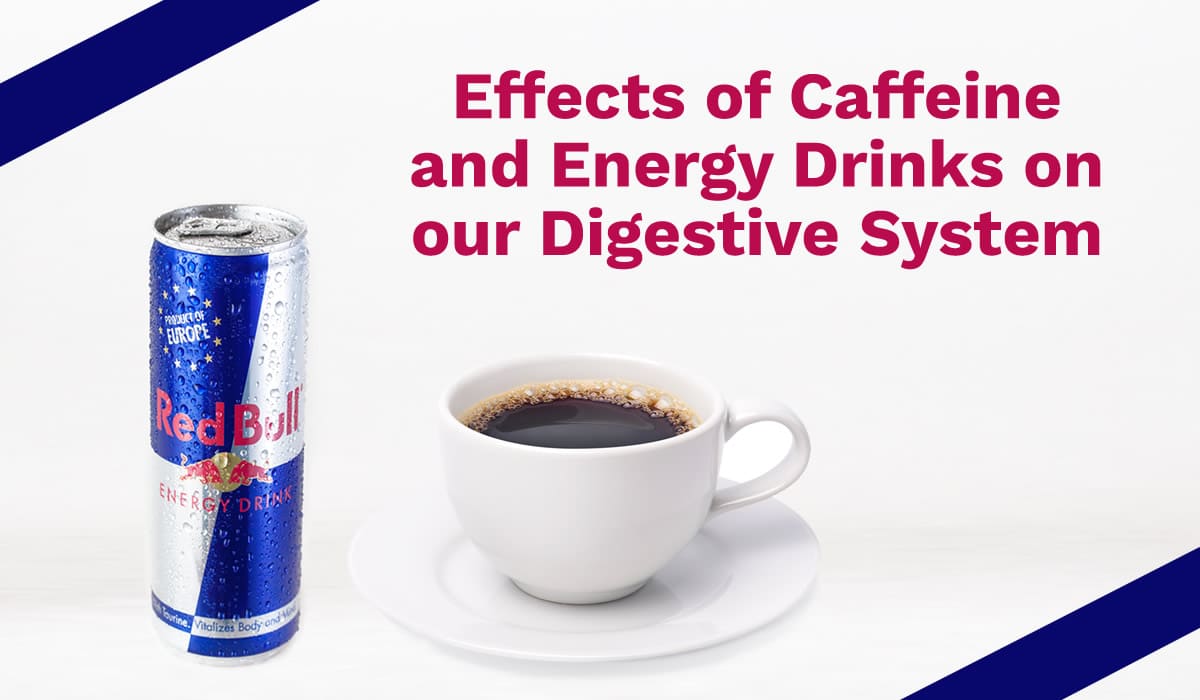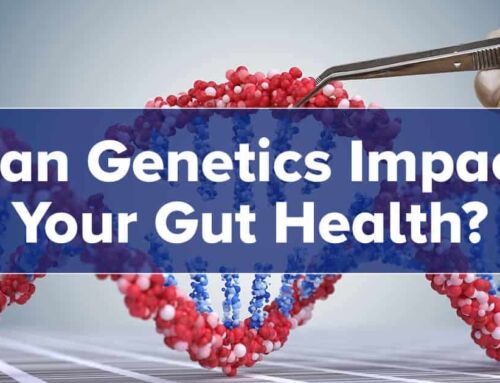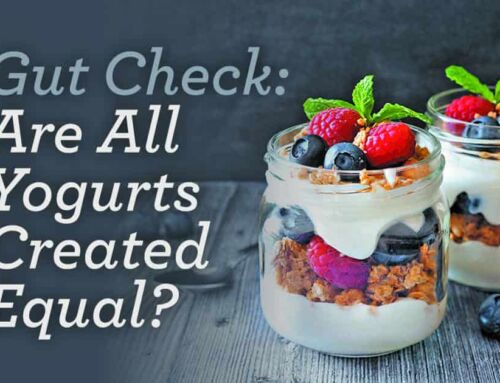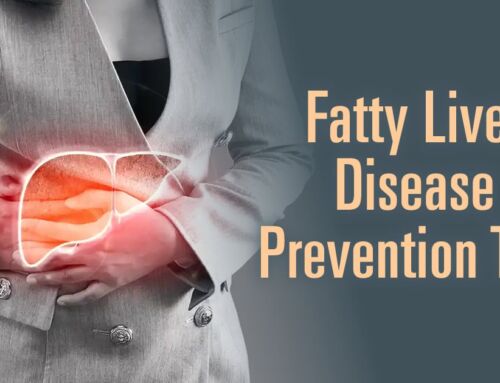Is your coffee pot set on a timer to start brewing coffee every morning like clockwork? There’s nothing like waking up to the roasty aroma of your favorite brew.
Taking that first sip of warm coffee fresh from the pot is almost as satisfying as the energy boost you experience after.
Drinking your morning coffee helps wake you up and get your day started on the right foot. And you can tell when you skip it. You feel sluggish and tired without that morning cup of joe.
Caffeine is a popular dietary choice for many people to give them that extra boost they need throughout their day. But do you know how these choices affect your gut health?
Today, we’ll discuss what caffeine is, and the pros and cons associated with it. We’ll explore how caffeine impacts your gut microbiome, which influences your gut health and ultimately affects your overall health.
What is Caffeine?
Caffeine is a natural stimulant that increases alertness and arousal. It’s found in plant-based foods such as coffee beans, tea leaves, and cocoa beans. Caffeine is also commonly added to foods and beverages.
Some popular dietary sources of caffeine include:
- Coffee
- Tea
- Soda
- Energy drinks
- Chocolate
Benefits of Caffeine Consumption
Caffeine has been associated with many health benefits because it’s derived from plant sources. These plant sources are rich in fibers that resist absorption by the small intestine and act as food for microorganisms in the gut.
Below, we’ll discuss some dietary forms of caffeine and how they impact gut health.
Caffeine in Coffee
Drinking 3 cups of coffee daily has been shown to promote healthy bacteria’s growth in the gut and reduce the growth of harmful bacteria. Coffee stimulates the digestive system. It improves bowel motility and reduces bowel transit time.
Remarkably, some studies have shown that drinking coffee may reduce the risk of chronic diseases, including:
- Metabolic syndrome
- Obesity
- Type 2 diabetes
- Cardiovascular disease
- Cancer
Caffeine in Tea
Many forms of tea have been shown to improve gut health by diversifying bacteria in the gut microbiome. A diverse, balanced ecosystem in the gut is essential to maintain homeostasis and prevent disease.
Benefits associated with drinking tea include:
- Decreased inflammation
- Reduced risk of diseases such as diabetes, obesity, cardiovascular diseases, and cancer
- Prevention of cellular damage
Negative Side Effects of Caffeine
While caffeine has many documented health benefits, it can also cause harmful side effects when overconsumed or added to certain foods or beverages. Below, we’ll discuss a popular caffeine-containing beverage that poses some health risks.
Caffeine in Energy Drinks
Energy drinks are widely promoted to increase energy and enhance mental and physical performance. Energy drinks contain significant amounts of caffeine, as well as taurine, sugar, and other herbals.
Shockingly, energy drinks have also been shown to reduce the activity, diversity, and gene expression of bacteria in the gut. These effects can upset the delicate balance of healthy and harmful bacteria in the GI tract and lead to metabolic syndrome diseases.
Due to the high sugar content in most energy drinks, they have also been associated with an increased risk of obesity and type 2 diabetes. Most energy drinks contain up to 21 to 34g of sugar per oz.
And if that wasn’t enough, consuming energy drinks has also been linked to heart problems. Energy drinks elevate heart rate and blood pressure and can lead to complications such as atrial fibrillation and heart attack.
How Much Caffeine Is Too Much?
The recommended daily caffeine intake is 400mg or less. To put that in perspective, that’s roughly 4-5 cups of coffee.
Energy drinks contain larger, more concentrated doses of caffeine. One can or bottle can have more than 200mg of caffeine. Drinking just two cans can put you over the recommended daily limit.
Caffeine intoxication can occur after consuming 200mg of caffeine. Symptoms of caffeine intoxication include:
- Anxiety
- Insomnia
- Stomach upset
- Muscle twitching
- Restlessness
- Inexhaustibility
Is Caffeine Bad for You?
Natural forms of caffeine, such as tea and coffee, can improve your gut health and give you an extra boost of energy. But consuming too much caffeine can also lead to uncomfortable symptoms. And in severe cases, medical complications.
Caffeine intake is cautioned for children and adolescents, pregnant women, and individuals diagnosed with cardiovascular conditions.
Consuming caffeine in moderation is your best bet. Coffee, tea, and dark chocolate represent healthy sources of caffeine. On the other hand, energy drinks are often filled with high amounts of caffeine, sugar, and added chemicals that can have harmful side effects.
Most likely, adding caffeine to your diet won’t make or break your gut health. But lifestyle modifications like eating a plant-based diet, exercising regularly, and getting a good night’s rest can go a long way towards promoting a healthy gut.
If you have concerns or questions about your gut health and are located in the San Antonio, TX area, contact our office at (210) 615-8308 or schedule an appointment online.






